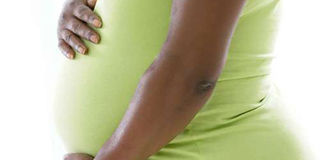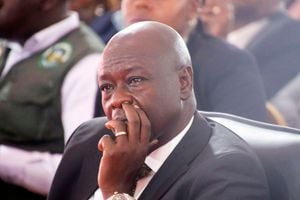A decade of pleading: My exhausting fight for safe abortion rights

Unsafe abortion cases are contributing to high maternal mortality. The high number can be attributed to unplanned pregnancies.
What you need to know:
- For a decade, I've fought tirelessly for safe abortion rights, battling against religious dogma, political apathy, and societal stigma.
- The constant struggle to justify women's choices, share traumatic stories, and combat misinformation has left me physically, emotionally, and mentally drained.
- Now, as I reflect on the lives lost and the toll this fight has taken on me, I realise I need others to take up the cause while I step back to mourn.
Five years ago, I sat across Wangu Kanja at a workshop to explore why women were still being raped despite years and years of advocacy against the vice. Wangu looked pained. You could hear the exhaustion in her voice. She had been doing this work for more than 10 years and she shared the toll it had taken on her. Perhaps I was naïve and still hopeful back then. Little did I know that five years down the line, I would be resonating with her exhaustion.
Over the last decade, I have engaged in litigation and advocacy for safe abortion in various capacities, including working at Fida Kenya, consulting for Reproductive Health and Rights Alliance, and collaborating with many other organisations.
I have spent these 10 years persuading doctors that women can indeed consent to their own medical procedures, while convincing religious leaders that there is a bigger fire in hell for a priest involved in sexual violation than for the woman who chose to end her pregnancy for reasons a priest cannot even begin to imagine.
These 10 years also included frustrating conversations with news editors as I tried to discourage them from using graphic imagery (or inaccurate pictures of a late-term pregnancy) each time they published a story on abortion.
The work has taken its toll on me. I am physically, emotionally and mentally exhausted. I am tired of pleading and rationalising International Day for Safe Abortion (September 28) to anti-choice radicals who constantly demonise safe abortion and then condemn the women who seek these services. I am tired of sharing and re-sharing horrific stories to justify why women should never have to die from this preventable tragedy. I am tired of debating with my pastor whether God will forgive women who opt to have safe abortions. I guess we will all find out on judgment day.
I am tired of being labelled a “radical feminist” simply because I am strongly against compelling a rape survivor to carry a forced pregnancy to term. I am now accepting of this “bitter feminist” title and for good measure. I am drained by the thought of one more call coming from my grassroots colleagues in Mathare slums, asking me to share the emergency numbers of Mama Lucy and Kenyatta National Hospital because another girl, yet again, almost ended her life while desperately trying to end her pregnancy using kitchen utensils and scrap pieces of metal.
I am tired of constantly calling Nairobi County Sexual & Gender-Based Violence Coordinator Roseline Mkabana to assist with yet another referral of a woman bleeding from complications from a backstreet abortion.
I no longer wish to recite the Ministry of Health data, which shows that approximately half a million Kenyan women and girls are dealing with the complications of abortion annually. It leaves a bad taste in my mouth to keep explaining the economic downside of unsafe abortions, like the Sh533 million it costs Kenya annually to treat abortion complications.
I refuse to be heckled by denialist, anti-science groups who insist that their mandate is to “protect life”, yet have done little to prioritise cases where Kenyans have lost lives from bad religion like the Shakahola massacre, police killing of protestors. Despite boasting of their legal prowess, they don’t even bother to join court cases such as the Baby Pendo’s or pregnant Sharon Otieno’s murders!
I no longer need to remind the church that if all women died from unsafe abortions, they would have no congregations to preach to. I refuse to remind politicians that if all women die, they will have no one to vote for them in elections.
I refuse to remind hate groups that the death of women from abortion complications means the death of the family, which they allege to be protecting. I refuse to sit and watch as neo-colonial groups descend onto Africa to host meetings with political leaders, fooling them to believe that safe abortion is against our own African culture.
No, this year, I will not waste my energy persuading any elder, politician or police officer about this issue. Instead, I will spend it mourning the women and girls whose lives were cut short between 2013 and 2023 because I did not do “enough convincing”.
I am tired of fighting all these groups. I need others to take up the fight for now. I need grant makers and civil society groups to support activists so they can get through burnout. I am the living and breathing example of what happens when you fight a brick wall of impunity and inhumanity for years.
The author writes from experiences working as a programme manager for reproductive rights at Fida Kenya, Kelin and consulting for think tanks, including Reproductive Health and Rights Alliance, Kenya Medical Association and Reproductive Health Services. She is a member of the Reproductive and Maternal Health Consortium Kenya and board member at Amnesty International Kenya ([email protected]).




